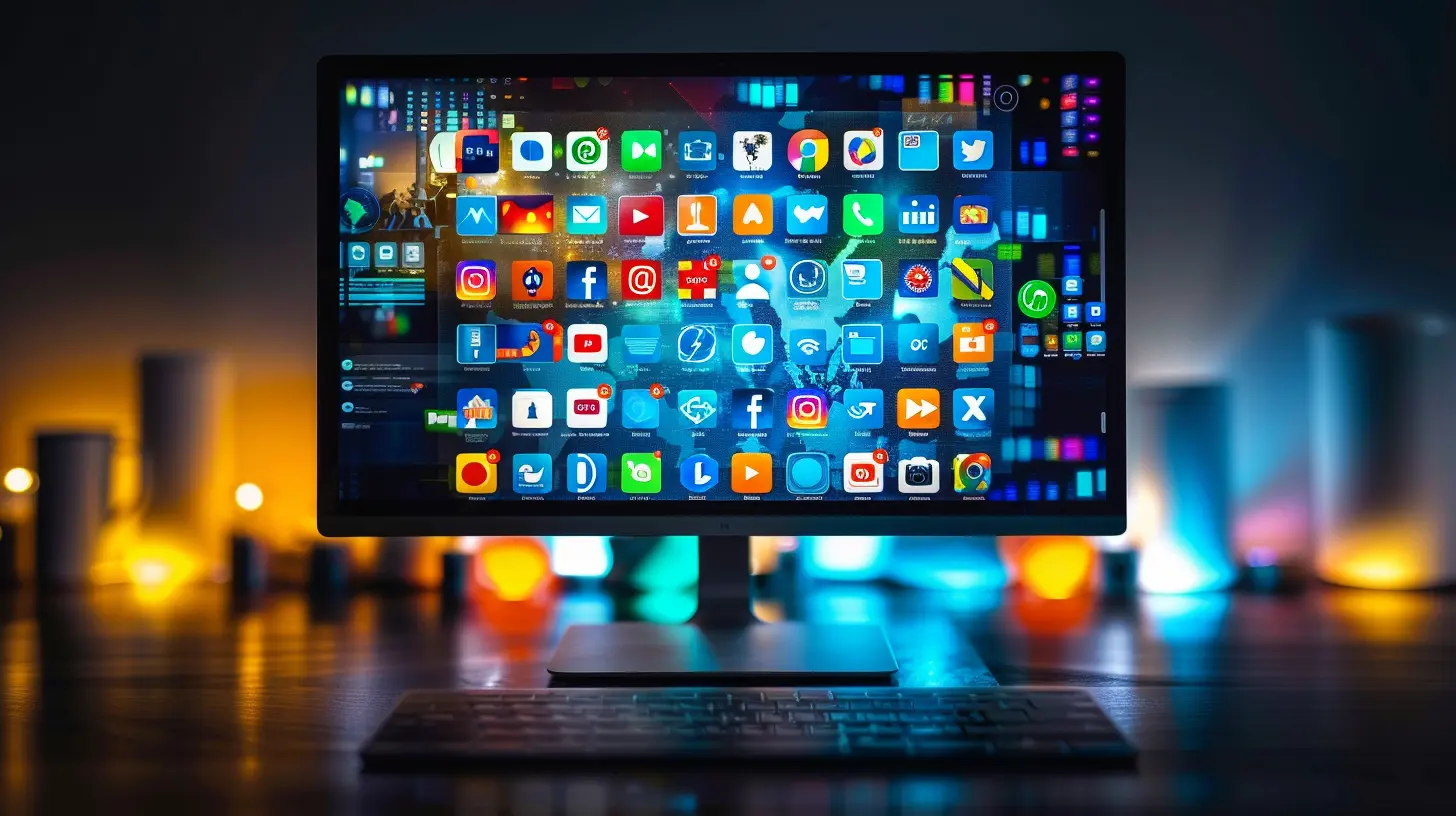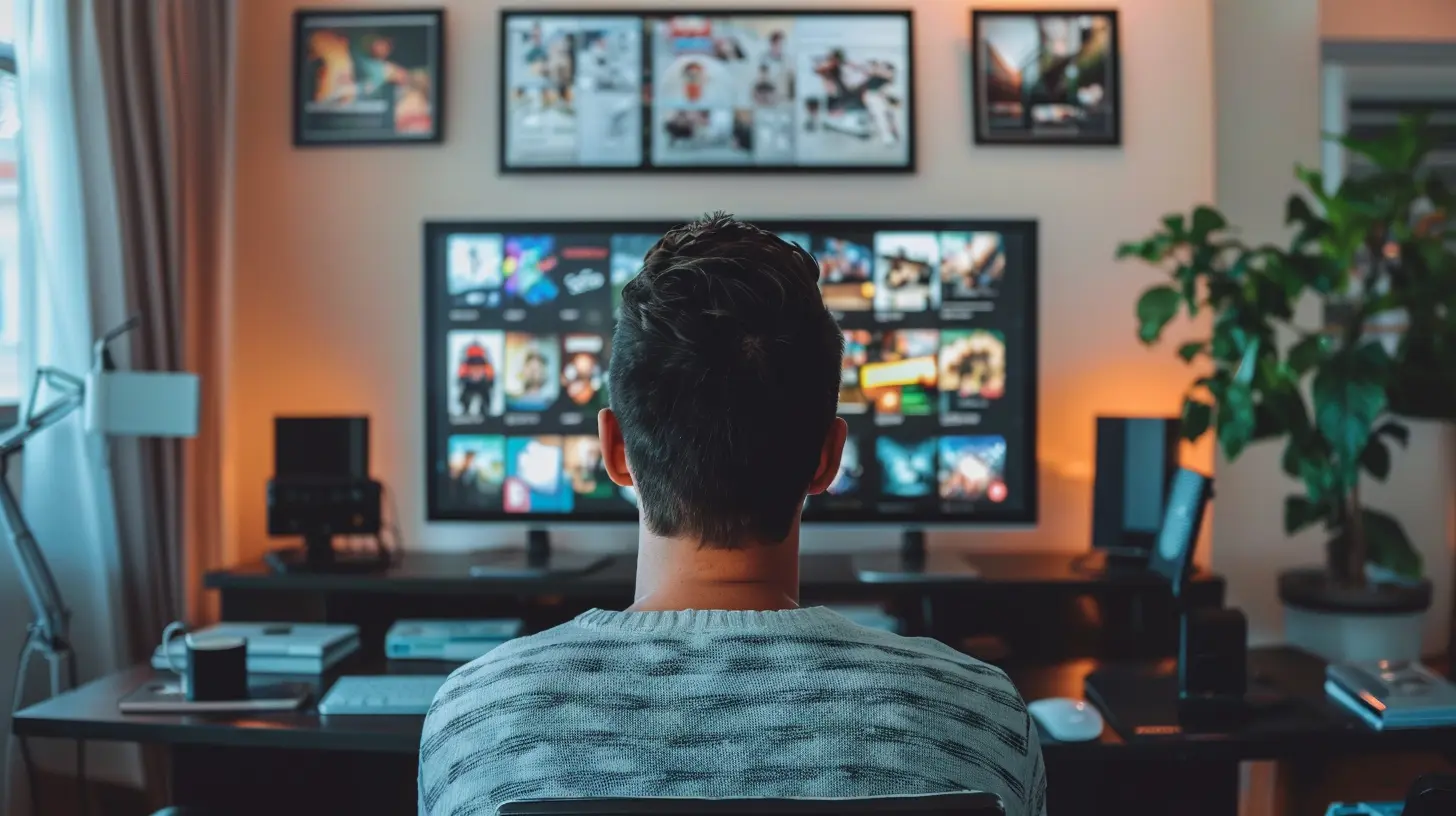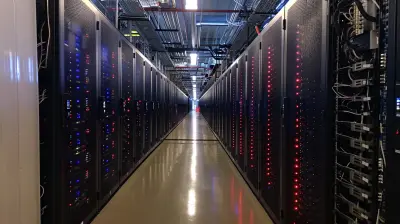Turning Your Smart Display into a Centralized Hub for Smart Home Control
20 October 2025
Smart home technology is no longer a futuristic fantasy—it’s here, and it's transforming how we live. But with so many smart devices scattered around your home, managing them can feel like herding cats.
That’s where a smart display comes in. It can act as the ultimate control center for your smart home, making life easier and more seamless. Whether you have a Google Nest Hub, Amazon Echo Show, or another brand, turning your smart display into a centralized hub is a game changer.
In this guide, we’ll dive deep into how to maximize your smart display’s potential and use it to control everything—from your lights to your security cameras—with ease. 
Why Use a Smart Display as a Central Hub?
You might already be controlling your smart lights with your phone or telling Alexa to turn on the coffee maker. So why bother with a smart display?Here’s why:
- A Visual Interface – Unlike smart speakers, a display provides a touch-friendly interface, making it easier to control your devices at a glance.
- Unified Control – It acts as a single hub instead of juggling multiple apps.
- Voice & Touch Commands – You get the best of both worlds—speak or tap to control your home.
- Real-Time Monitoring – View security cameras, check the weather, or even see who’s at the door—all in one place.
In short, a smart display isn’t just a fancy screen—it’s the brain of your smart home setup. 
Choosing the Right Smart Display for Your Home
Before turning your display into a smart home hub, make sure you’re using the right one. Here are some popular options:1. Google Nest Hub (or Nest Hub Max)
- Best for Google Home & Assistant users.- Works seamlessly with Google’s ecosystem.
- Great for controlling Nest thermostats, cameras, and more.
2. Amazon Echo Show (5, 8, 10, 15)
- Ideal for Alexa-based smart homes.- Supports Ring doorbells, Alexa routines, and Fire TV features.
3. Apple iPad (With Apple Home App)
- Works best with Apple HomeKit.- Can be placed on a stand and used as a smart display.
4. Smart Displays from Third Parties
Brands like Lenovo and JBL also offer Google Assistant-enabled smart displays if you're looking for alternatives.Pick the one that aligns with your smart home ecosystem for the best experience. 
Setting Up Your Smart Display as a Smart Home Hub
Step 1: Connect Your Smart Devices
Before using your smart display as a hub, connect all your smart devices to your chosen ecosystem (Google Home, Alexa, or Apple HomeKit).How to Connect Devices to Google Nest Hub
1. Open the Google Home app.2. Tap “+” > Set up device.
3. Choose “Works with Google” and link your accounts.
4. Assign devices to rooms.
How to Connect Devices to Amazon Echo Show
1. Open the Alexa app.2. Tap “Devices” > “+” > “Add Device”.
3. Choose a device type and follow the setup instructions.
4. Group devices into rooms for easy control.
How to Connect Devices to Apple HomeKit (iPad as a Hub)
1. Open the Home app on the iPad.2. Tap “+” > Add Accessory.
3. Scan the HomeKit QR code on your smart devices.
4. Organize them into rooms.
Step 2: Set Up Voice & Touch Controls
Once you’ve linked your devices, you can start controlling them with voice commands or on-screen controls.For Google Nest Hub
- "Hey Google, turn on the living room lights."- Swipe down from the top to access the Home Control Panel.
For Amazon Echo Show
- "Alexa, lock the door."- Swipe down and tap Smart Home to see all connected devices.
For Apple HomeKit on iPad
- Say, “Hey Siri, dim the bedroom lights.”- Open the Home app to manage devices with a tap.
Step 3: Create Smart Home Routines & Automations
Want to make your smart home more intuitive? Automated routines let you trigger multiple actions with a single command.Google Home Routines
1. Open the Google Home app.2. Tap Routines > New Routine.
3. Set a trigger (e.g., "Good morning").
4. Add actions (e.g., turn on lights, read the weather, and play music).
Alexa Routines
1. Open the Alexa app and go to Routines.2. Tap “+” > Create Routine.
3. Choose a trigger (like motion detection or a time of day).
4. Add actions like adjusting temperature or turning on the coffee maker.
Apple HomeKit Automations
1. Open the Home app.2. Tap Automation > Create New Automation.
3. Choose triggers like “When I Arrive Home”.
4. Select actions like unlocking the door or turning on the porch light.
These routines help your home run smoothly without constant input from you.
Step 4: Use Your Smart Display as a Security Hub
A smart display isn’t just about convenience—it’s a powerful security tool too.Live Feed Monitoring
- View your Nest Cam, Ring Doorbell, or Arlo cameras directly on the display.- Ask Google Assistant or Alexa: “Show me the front door camera.”
Two-Way Communication
- Talk to visitors through your doorbell camera using the Echo Show or Nest Hub Max.- See who's at the door without opening your phone.
Smart Security Automations
- Set up an automation where lights turn on automatically when motion is detected outside.- Program your smart display to alert you when motion is detected at odd hours.
A smart display can truly act as the command center for home security. 
Smart Display Tips & Tricks for Maximum Efficiency
Before we wrap up, here are some bonus tips to make your smart display even more powerful:✔ Use Sticky Notes & Reminders – Set reminders, sticky notes, or grocery lists that everyone in the household can see.
✔ Control Multiple Homes – If you have a vacation home, you can manage devices in multiple locations from one display.
✔ Night Mode – Enable a dim, warm-toned display at night so it doesn’t glare in the dark.
✔ Pair with Smart Speakers – If you need better sound, connect your smart display to external speakers.
✔ Use As a Digital Photo Frame – When not in use, showcase family photos, artwork, or calming landscapes.
Final Thoughts
A smart display is much more than a fancy screen—it’s the ultimate control hub for your smart home. With the right setup, routines, and integrations, you can simplify your life and manage everything with ease.Whether you're turning off the lights, checking security footage, or setting up automated routines, your smart display will be the beating heart of your home automation system.
So go ahead—turn that screen into a powerful smart home command center today!
all images in this post were generated using AI tools
Category:
Smart DisplaysAuthor:

Reese McQuillan
Discussion
rate this article
1 comments
Tiffany Hardy
Great tips! Transforming your smart display into a home hub is a game changer. Enjoy the convenience and fun of smart living!
October 21, 2025 at 2:52 AM

Reese McQuillan
Thank you! I'm glad you found the tips helpful—smart displays truly enhance the smart home experience!


